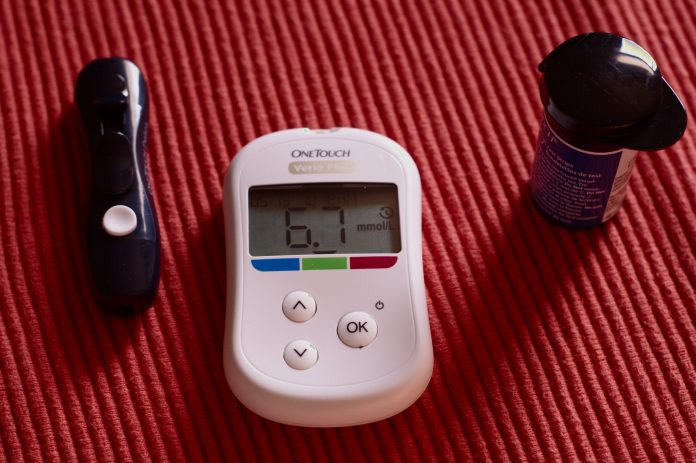Diabetes is a metabolic disease that causes high blood sugar. The hormone insulin moves sugar from the blood into your cells to be stored. If you have diabetes your body either doesn’t make enough insulin or can’t effectively use the insulin it does make. If high blood sugar is left untreated it can result in damage to your eyes, nerves, kidneys and other organs.
The most common symptoms of diabetes include:
- frequent urination
- blurry vision
- increased thirst and/or hunger
- extreme fatigue
- weight loss
- sores that don’t heal
Genetics and lifestyle factors combine to cause Type 2 diabetes. It can run in families but is quite often caused by being overweight or obese.
There are risk factors for developing type 2 diabetes.
- Having high blood pressure or high cholesterol.
- Excess weight, quite often to the point of being obese.
- Lack of physical activity.
- Having a parent or a sibling with diabetes.
High blood sugar can result in damage throughout your body, mainly in your tissues and organs. The longer you live with it, the higher your risk becomes of complications. These include heart disease, heart attacks and strokes. Diabetes can also cause vision loss and nerve damage. Your feet can become damaged, quite often developing sores or infections that won’t heal.
Type 2 diabetes can usually be managed with a combination of medication and lifestyle changes. Your diet will have to be watched carefully with just the right amount of sugar each day. You will have to increase your physical activity. It will help to keep your sugar levels lower. Work with a dietitian to decide on the best diet for your lifestyle.
Type 1 and gestational diabetes also have some of these symptoms and risks as well as additional factors that come into play. To read the complete article on everything you need to know about diabetes, click here.






















